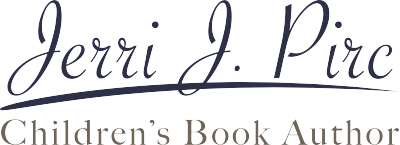30 Million Words
- 3 October 2018
- Jerri Pirc
30 million words
Introduction:
You can retire as a speech language therapist, but you never tire of reading and learning about language development. In today's blog I want to introduce you to an excellent book, share a bit from that book, and leave you with enough of a teaser to seek out the book and read it in it's entirety. Wanna learn how to build your child's (or grandchild's) brain? Read on.
The book is titled Thirty Million Words: Building a Child's Brain. The author is Dana Suskind, M.D. It becomes evident very quickly that having conversations with children even when they are just infants is the most important thing you can do for them. Suskind draws on scientific research to explain why parent talk makes a huge difference in school readiness and learning throughout life. She is the founder and director of The Thirty Million Word Initiative, a research program at the University of Chicago.
Outcomes:
I'll cut to the chase for those that are more interested in the outcome than the research design.
-
Forty two families from all socioeconomic strata were selected.
-
Children were followed from nine months to three years.
-
A child's ability to learn is related to the amount and type of parent talk heard in the first years of life.
-
Even though there were similarities, one difference was the number of words spoken in one family versus another.
-
At the end of the 3 year period there was a cumulative word gap of thirty million words between what children from professional families heard and what children from welfare families heard.
What does this mean?
-
How much and how a parent talked to their child, the language environment, was the essential factor in future learning.
-
Science tells us those first three years are critical for brain development and we know brain development is language dependent. The window is small. The more parents talk, the faster the child's vocabulary grows and the higher the I.Q. test scores at three years and later.
-
Quantity is important, but so is quality. Positive and supportive initiated language versus imperative or inhibitive initiated language is also a factor. E.G. "You're so smart." compared to "Quit that!".
-
The author goes on to provide more statistics, but more importantly strategies that we can all use to raise achievement levels in children; tools that cost nothing! The importance of chit chat; business talk ("Get down.") and extra talk ("What a big tree!") are highlighted. So baby talk is fine (I knew it!), but relentless correction is not.
-
Further studies confirm that while socioeconomic differences are apparent in the data, they were not the salient ones in the results. Those children exposed to more talk had larger vocabularies and faster language processing. This was true for all socioeconomic levels.
Bottom line is that it all comes down to nourishing the brain with words. Brain building; we can all play a part in building successful lives. Want to learn more? Please do. Read the book or go to
thirtymillionwords.org
As always, please share, subscribe to my newsletter, comment, and follow me on face book Jerri J. Pirc, author. And of course feel free to buy a book or two. Also, check out my new photo gallery. You may recognise a face or two.
More later,
Jerri
Share this post
Comments
- Mary
- 3 Oct 2018
- 3:31 pm
Thanks Jerri. Thirty Million Words: Building a Child's Brain is a fascinating book. Miranda and I used it as part of our research for developing Motueka's 1000 Books Before School. Tasman Libraries does hold a copy of this book in it's collection.
- jerri
- 4 Oct 2018
- 8:51 am
Thanks, Mary. It is a marvelous book. I read it and did a second read before writing this blog. I applauded your 1000 books before school. Such an exciting initiative. Would love you to be a guest blogger and talk about your project in Motueka. Will be in touch.
